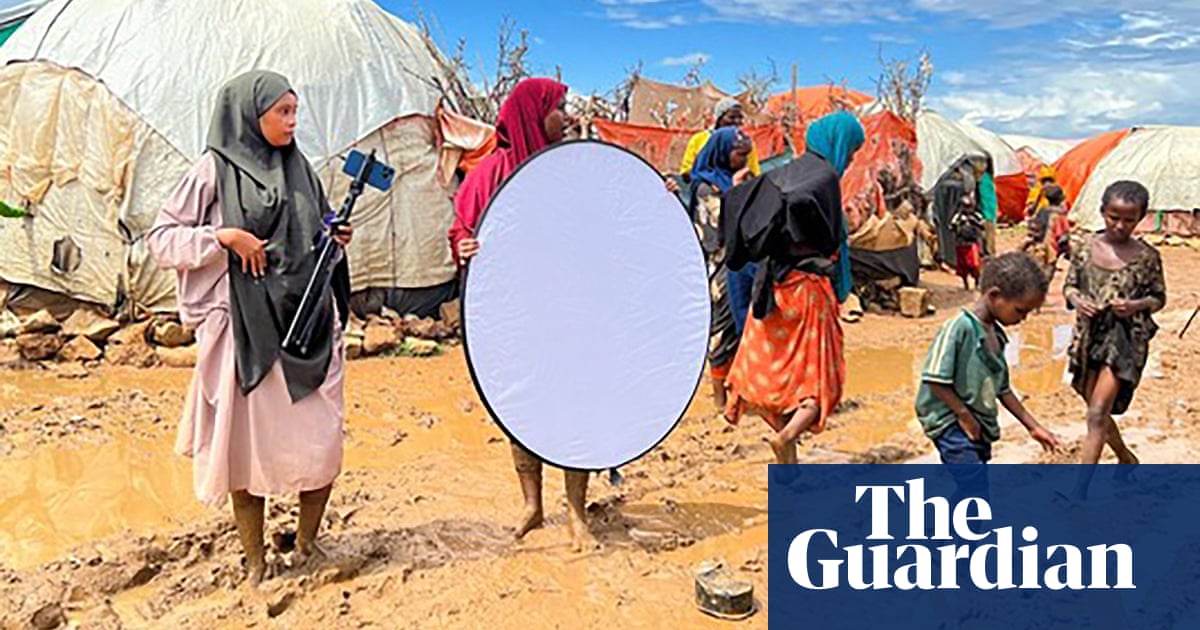New show will follow Question Time format answering audience questions on taboo subjects from periods to women in politics
Somalia’s only all-female media team, Bilan, is launching the country’s first TV current affairs show to be hosted by a woman.
The debate show, which plans to address some taboo subjects, will also be the first programme on Somali television to have a panel of at least 50% women, and the first to broach contentious topics, such as a critical shortage of female teachers and the challenges faced by women trying to get into politics, as well as environmental issues.
Launching on International Women’s Day, 8 March, the monthly programme will be similar in format to the UK’s BBC Question Time, touring venues around the country and inviting audience members to take part. It follows a successful pilot in December when the panel debated period education in schools.
Sometimes I get so sick of the jingoistic reporting from the guardian when it comes to Africa.
Above is the photo they used in the story. Here is the photo the show uses in their own promotion. See any difference?
It probably itched their Photoshop hand when they decided against putting a malnutritioned, starving kid with googly eyes on the thumbnail.
Adding to this: Bilan’s self introduction video (1 min 41 sec, hardcoded English subtitles). Sorry, no transcript for those who rely on real text. I wanted to watch this but I was left with no information in the article on how or if English speakers even could.
The entire Western media’s approach to African nation reporting also enrages me. The continual insistence of media (especially UK based) on choosing photos to remind us that black Africans are poor and “backwards” is shameful racism. It’s no wonder that African nations are distancing themselves economically and ideologically from the West when their
colonizersallies’ media machines continue to treat them this way.Thanks for pointing it out.
Good for Somalia.
I’d be interested in watching a subtitled episode.
It that this is not good, but I kinda feel that Somalia may have a few more important things to worry about?
More important things to worry about than journalism on issues that affect (at least half) the entire population? Issues that have never been acknowledged institutionally due to women being denied employment and education? In a country that ranks fourth lowest for gender equality globally, maternal and infant mortality rates? Do you really think Somali women have nothing to add to these conversations that hasn’t already been covered?
I think that in a country where most of the population is trying not to starve and in too many cases failing to do so, in a country that can’t even be properly called as such due to the complete disappearance of centralized authority and the huge instability and internal conflict always present, maybe, just maybe, addressing that might be a bit more important (especially because a lot of the infant mortality rate is starvation)
It seems to me that if we’re talking about addressing starvation, war and political instability, then allowing the demographic who largely are responsible for food production and family health to lead and participate in a single (probably 1 hour long weekly) conversation on TV about those issues might be a key step to better understanding the core problems facing them and increasing democracy by ensuring 50% of the population is heard. Problems can’t be properly addressed until they are accurately identified, and missing 50% of the the population’s voices about problems won’t help.
Also, for just 6 people to address a huge communication gap on a national scale in multiple media formats that can reach a population that is largely illiterate? That sounds like a hugely impactful and solid strategy for organizing important community projects and initiatives that increase stability.
What specific projects would you suggest to these 6 women that address the problems you have identified and make a larger positive impact than their current efforts?
Is it possible that people with lived experience might have a better knowledge of their needs and the next steps in fixing their own problems than you?





